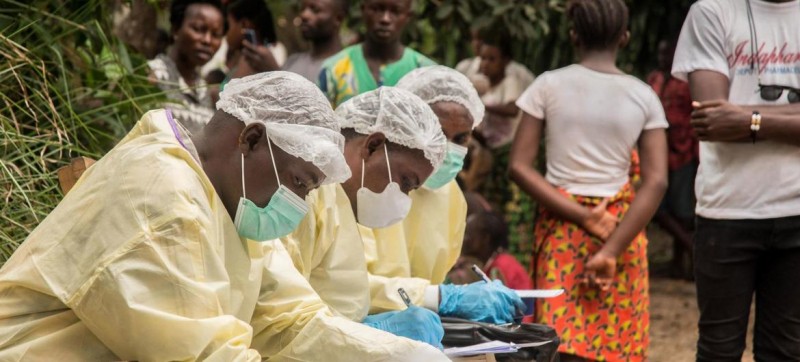Contents
WHO is supporting African countries in implementing mass vaccination campaigns.
In the wake of the COVID-19 pandemic, the World Health Organization (WHO) announced on Wednesday a new drive to find ways of revamping the African region’s health systems.
“The COVID-19 pandemic highlighted the fragility of our continent’s health infrastructure and the urgent need to strengthen the overall health system to secure access to quality care for all Africa’s people, when and where they need it, without incurring financial hardship,” said WHO’s Africa Regional Director Matshidiso Moeti.
LIVE from #RC72AFRO with @DrTedros on rethinking and rebuilding resilient health systems in Africa to achieve #HealthForAll and health security ⬇️ https://t.co/mNy4Z9G3gK
— World Health Organization (WHO) (@WHO) August 23, 2022
Rebuilding good health
To rethink and rebuild resilient health systems on the continent, WHO’s Regional Committee for Africa has been meeting this week in Lomé, Togo.
There, they are examining measures in achieving universal access to health care and exploring how to maintain essential services during outbreaks, as well as the investments and actions needed for quality medical products and health technologies.
“Domestic investment in health, including health research, has significant economic returns, while promoting resilience and sustainability; healthy populations translate to healthy economies,” said Dr. Moeti.
Health emergencies
COVID-19 has exerted enormous pressure on health systems, adding to the African region’s existing health challenges, which responds to more than 100 health emergencies every year, according to WHO.
Emergencies trigger health programme shutdowns that undermine progress towards universal health coverage and lay bare inequities in access to health care.
A special event launched at the Regional Committee kicks off a collective process to support African countries as they ramp up efforts to recover from the pandemic-triggered disruptions and work to rebuild their health systems.
A series of consultations and actions will follow to support countries in achieving universal health coverage and health security.
Cholera in Malawi
Meanwhile, WHO and the UN Children’s Fund (UNICEF) are stepping up efforts to contain and prevent the spread of cholera in Malawi.
The outbreak, initially limited to the southern part of the country, has now spread to Malawi’s northern and central regions.
To date, 1,483 cases and 58 deaths have been recorded, with the case fatality rate at 3.9 per cent, according to a Government press statement issued on Monday.
Cases continue to rise outside the traditional hotspot districts, affecting lakeshore communities and crowded, urban areas with insufficient water and sanitation facilities.
“The impact of the larger outbreak will overwhelm the already over-burdened public health services and health-care delivery systems in the country, so we must act now,” said UNICEF Malawi Representative Rudolf Schwenk.
“The good news is that we know the solutions”.

A Cholera Camp in Nsanje, Malawi.
Funding gap
Despite continuing efforts in the national cholera outbreak response, significant gaps exist, including the urgent need for early detection and management; critical supplies to manage cases and for water treatment, personal hygiene and water storage at the household level; and communications around prevention and positive hygiene practices.
UNICEF and WHO are appealing to partners and donors for additional funds and support to address these challenges and contain the outbreak.
“Every death from cholera is preventable with the tools we have today,” said WHO Country Representative Neema Rusibamayila Kimambo, upholding that the UN agency will continue to support the Health Ministry in “implementing immediate and long-term cholera control, response and preventive measures”.
Since the declaration of a cholera outbreak last March, UNICEF and WHO have been working closely with the Ministries of Health, Water and Sanitation, district authorities, and others, in developing and coordinating a response plan to deliver essential supplies and services to the families and communities in Malawi’s cholera-affected districts.




Comments are closed, but trackbacks and pingbacks are open.